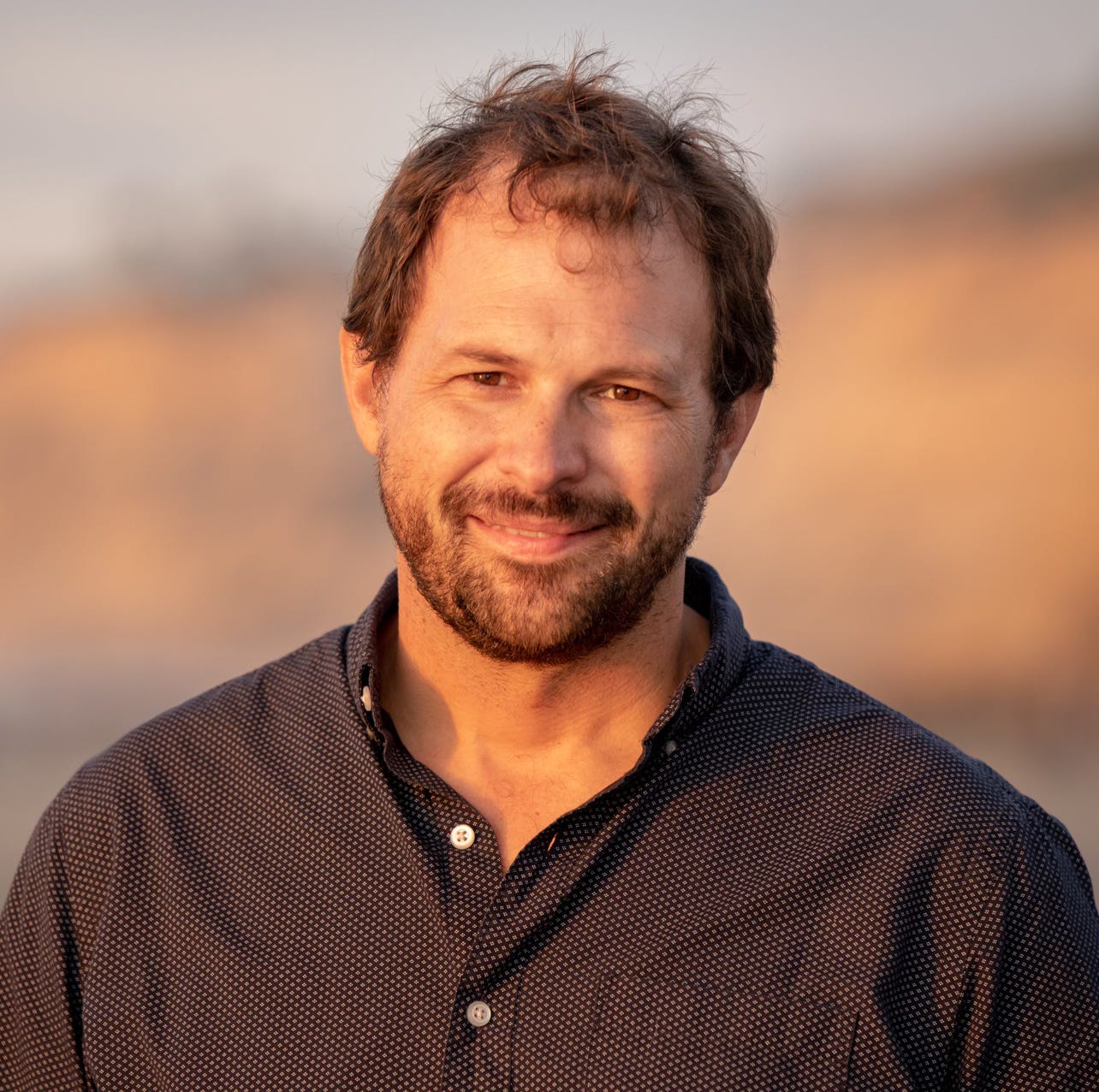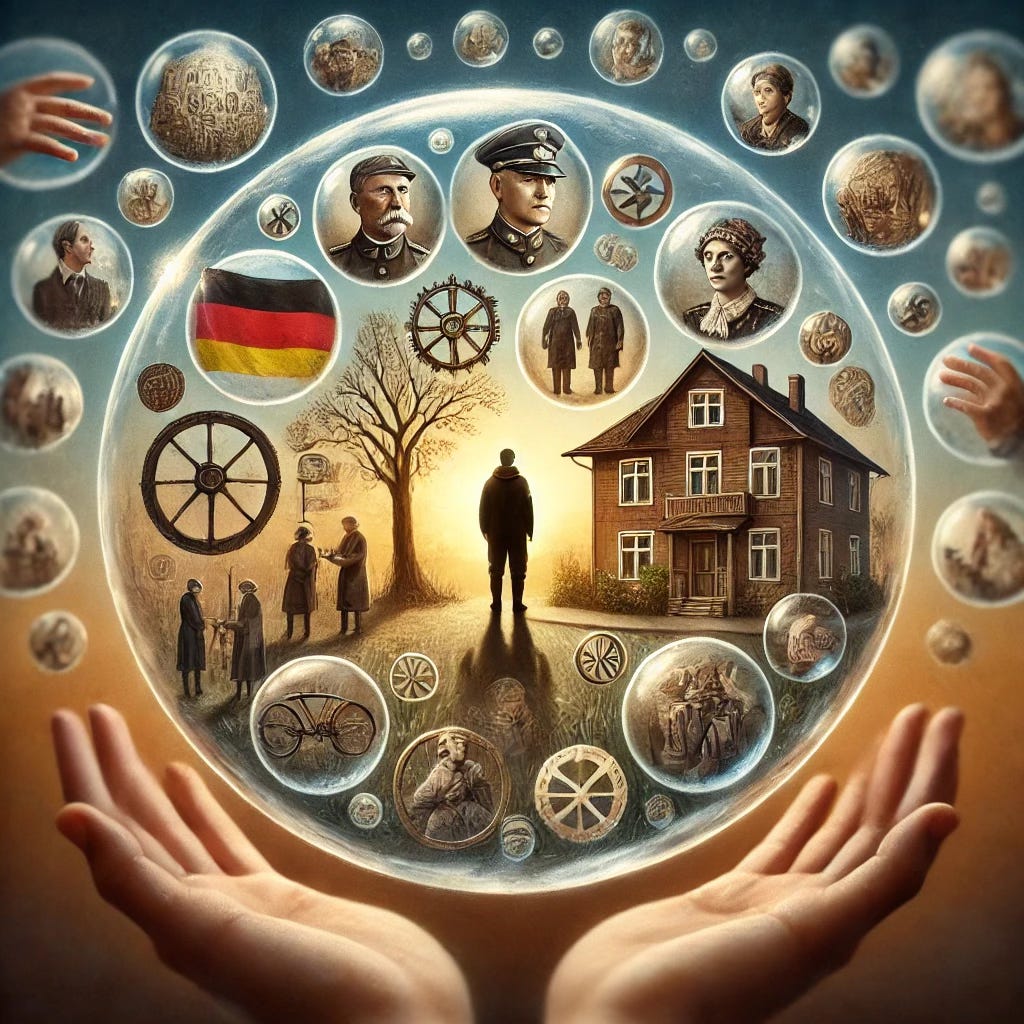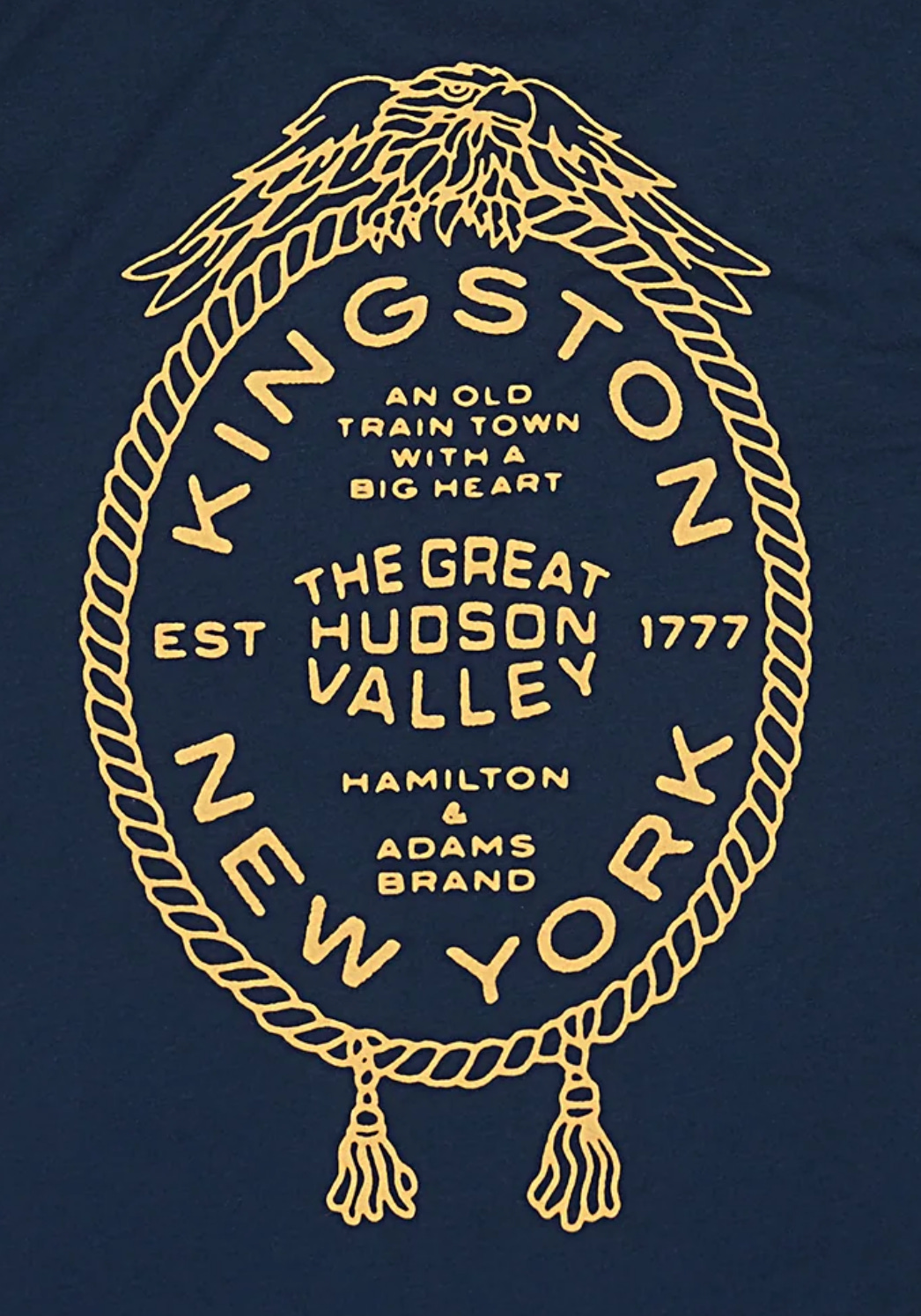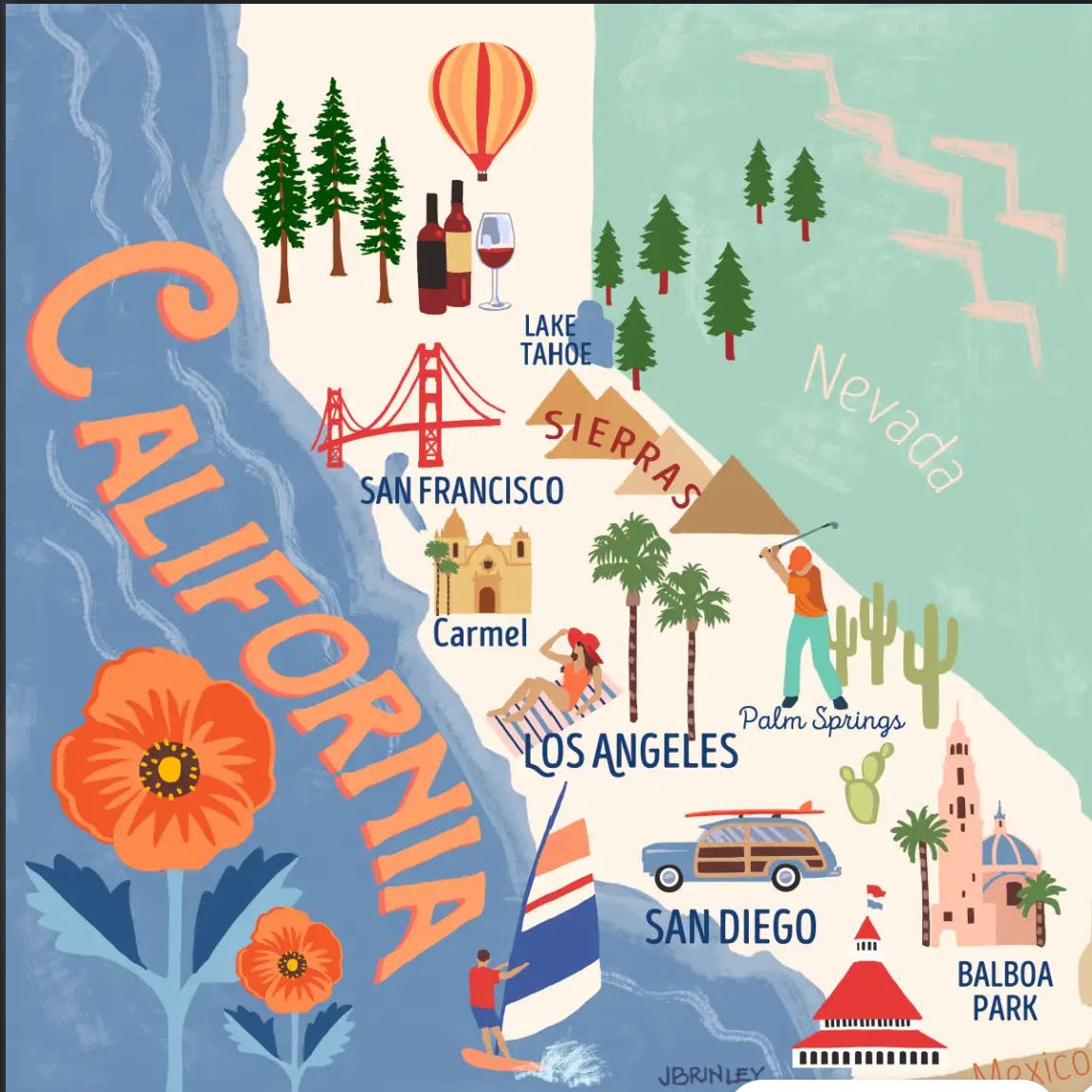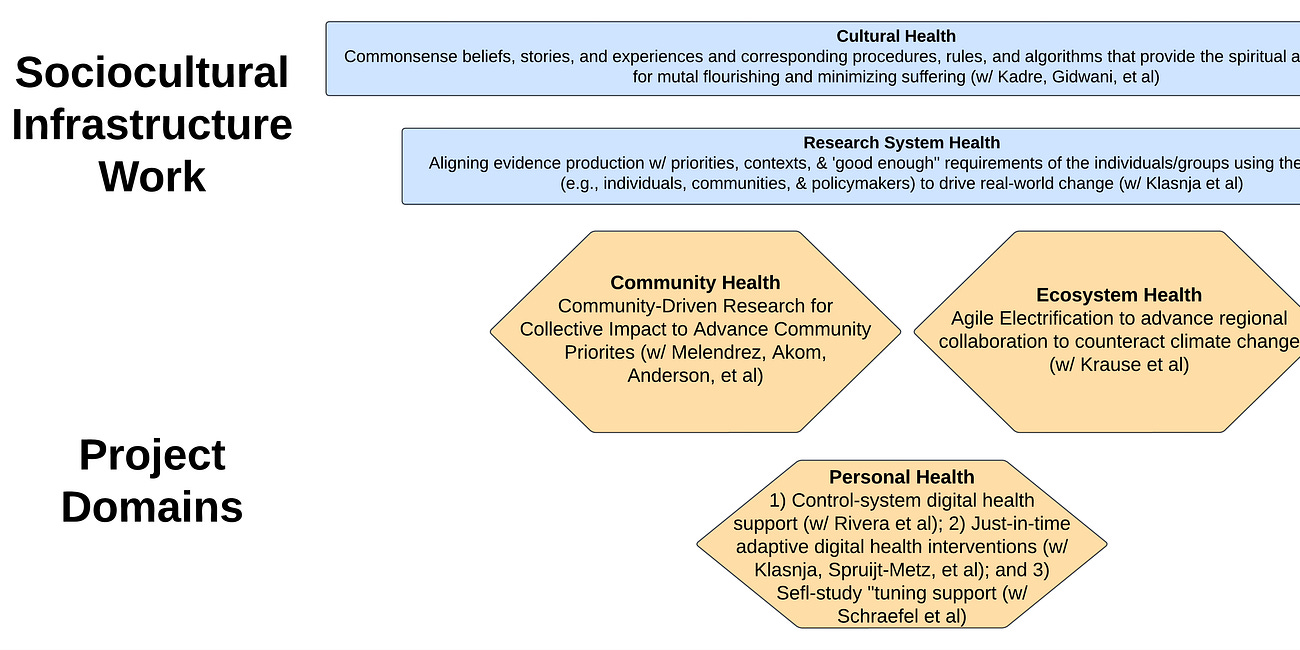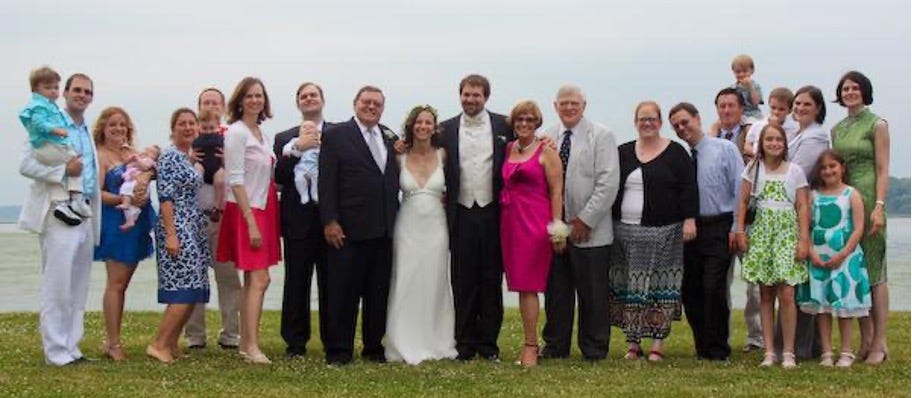In a separate post, I introduced the concept of a "bubble"—the idea that each of us lives within our own perspective. Here, I want to offer transparency about my own bubble by sharing my lineage and personal history. This is an opportunity for others to understand the areas where I have expertise and a solid grasp of reality, as well as the aspects of life that are outside my personal experience. By doing so, I hope to foster awareness of the boundaries where my thoughts, beliefs, and actions may not always align with other “bubbles” and, thus, where I am searching for help and support in my quest to act in good faith and good will towards advancing mutual flourishing and minimizing suffering.
My Family Lineage
My mother’s family, the Deichmann’s, originates from Germany, where both of my grandparents were ethnically German and Lutheran. They actually met in Ohio and between World War I and II moved back to Germany. To be honest, they never told me about this and so, at this point, all I have is second and even third hand stories at this point. Still, from what I’ve been able to put together from my mom, it seems that they were drawn into the the promise of a German Revival and a yearning to come home to their homeland after World War I. This was the allure that could “take people in” to a promise of some “returning to greatness.” While I don’t think they ever officially joined the Nazi party, they still were not necessarily against it either, at least while they were there. The echoes of the past coming into today.
My mom was born in Germany at the close of World War II. One of my uncles, who was actually a U.S citizen, was drafted to fight for Germany and was missing in action (to this day, no one in the family really knows what happened to him). There are stories of letters he wrote describing his change of heart and his loss of faith in the war. With this and losing their eldest son, my grandparents were left with nothing at the war’s end, save their lives and family. My grandmother, mom, and aunt took a a box car (living with the goat so they could have fresh milk and a pot belly stove for warmth) to live with my mom’s grandparents in Southern Germany. My grandfather returned to the states to retain his American citizenship with my uncle. They returned to the US and worked hard to get resources to bring the rest of the family over. They moved first to Albany, NY where my grandfather worked as a stage hand on a farm, he connected with his brother for some support a while and, eventually, everyone settled in Queens, New York.
With this history comes the complex reality that my grandparents – who I experienced as loving, caring, devout grandparents before they passed away– were swept up in the promises and allure of “German Renewal” as promised by the Nazis. This "fact" impacted my life in various ways, such as my parents' decision not to teach us German, despite both being fluent themselves. At that time, it was not a good thing to be a German (for obvious reasons). With this, there was a constant sense that in my “blood line” held the potential of being sucked into authoritarianism and its promises for “greatness.”
I just watched this satirical video about the German’s commitment to Never Forget. While I am an American and so I don’t feel this in the exact same way Germans living in Germany due, when listening to this, I could feel a great deal of my own shame and ancestral guilt, coupled with a felt responsibility to never forget mirroring much of my experience. If you want to a get a feel for how I’ve felt my entire life about my German ancestry, watch this video:
The Far Right is Rising in the Land of ‘Never Again’
With this, all of these stories are complex and not easily conveyed in a brief introduction. For example, my sense is that my grandparents held a great deal of shame and embarrassment about that past; they never talked about it. Interestingly enough, one of their closest friends in the U.S was Jewish, who helped them to get a fresh start. According to my “Opa,” he was the only person who helped them get settled back in.
In New York, my grandparents worked tirelessly to rebuild their lives. They opened a small shop in Queens, and my grandfather took on various jobs, such as real estate (my cousin just recently found a huge old sign about his real estate business and hung it up at “the farm”), to support the family. Initially, my grandparents, my mom, my aunt, and my uncle lived in a two bedroom apartment at the back of the shop, while they rented out the upstairs apartment to make ends meet. Over time, they saved enough to buy 20 acres of land on the Delaware River in Pennsylvania, near the Delaware Water Gap, which they named "Lebenstraum"—which they translated to me as "Life Dream." I remember going to “the farm” often and enjoying being there, connecting with my family. That land remains in the family today and continues to nourish and support us (for example, my brother recently had a beautiful table crafted from fallen Black Walnut Tree that grew on the property).
My father’s family was also ethnically German and Lutheran. My paternal grandfather was a butcher who immigrated to New York City before World War II. My grandmother, who was from the Engelmann family was supported in her move to the U.S. by her older brothers, who had already established themselves in New York (she was one of 14 children, with 9 surviving into adulthood and several immigrating to the United States). The Englemann was and is a large family with some of my family still in Germany and in Cooperstown, NY. In Cooperstown, it was where my dad learned about boats, learned how to scuba dive, and otherwise. He spent summers there, so much so that his uncle, Uncle Fred, asked if he could adopt my dad (as the golden child, see below, my grandparents declined).
With families like this, we had our fair share of complications and dynamics like today. For example, it is family lore that one of the Englemann boys was paid 50 cents to take luggage off a ship. As he took off the luggage, he jumped ship and settled into the U.S as an illegal immigrant.
Unfortunately, both of my grandparents on my father’s side died before I was born. With this, I have no memory of them and did not hear as much about their stories and life, save through others.
I’ve heard tales of my dad’s parents, who were all in the U.S. during World War II, actively abhorring what happened. So much so that, there was a famous story (in our family) of my grandfather going back to Germany to visit his family. They were having a nice meal and enjoying one another’s company, until the War came up. As it was told to me, my grandfather couldn’t help but berate and shame my German family for what happened in Germany and their complicity of it all. Suffice to say, after that visit, he never returned again to Germany.
But, back to the history of my family on my father’s side….
Tragedy struck early—my grandparents lost a child at a young age. My father was born afterwards and treated as a bit of the “golden boy.” Despite this hardship, they built a life in New York, where my father was born just before World War II. My grandparents eventually had enough money to purchase a small bit of land and a home in Ulster County (where I was born), which they called “Eagle’s Nest.” They actually got it for my dad because he had asthma. At the time, the recommendation for asthma was to get some “mountain air.”
It was there that other members of the family eventually took over ownership and residence in Eagle’s Nest, but, eventually the property was sold. Again, I have fond memories of visiting and wandering the woods around Eagle’s Nest and connecting with family there. For example, I can distinctly remember learning how to shoot a rifle there and wandering into the woods to shoot at the “garbage pile” (which basically amounted to things like cans, metals, and glass). It’s also there, along with the farm of course, where I got connected to German cuisine, such as German Dumplings, schnitzel, spaetlze (which, as I write this, my son just said he wants to have tonight…so continuing on in that tradition ;), Rouladen, and various wursts (Weiswurst, Bratwurst, etc).
With all of this, the complexities of the human condition are often at odds with the medium of the written word and the desire for a “clean” story line, as is the case here. While I do not ask for you to accept any of the atrocities that occurred by the German people (and the connection within my family), I do hope you can look with compassion at my family and see them as the complex, multifaceted, and yes, at times imperfect people that they were and my living relatives active work to “never forget.”
Throughout my life, I have felt the weight of this and the direct connections my family had to Nazi Germany throughtout my life. For some time, I’ve felt it as a weight and responsibility. Something I needed to atone for and do whatever I could to not let something as horrible as the Holocaust to happen again. This, coupled with my dad’s “righteous rage” had put a fire in my belly, early on, to live and act with integrity and with a drive towards supporting the health and growth of others.
It all has come up in my personal life and friendships. For example, almost all my closest friends, such as Harlan Weber, Dan Seward, David Wolf-Pellingra, and others, are Jewish. While most of the time, we just goof off and have fun, we’ve also had our fair share of hard conversations, often with a strong dose of understanding our histories and the ways in which our ancestry were intertwined (not always in a good way), while also, through compassion, friendship, and dialogue, finding our connections and strengthening our bond.
I must also admit that, with this history, there are two critical lessons that I have learned:
1) My own history quickly absolved any possible allure to justifying my “greatness” through my “blood,” lineage, or otherwise (I really can’t ever really understand the allure of this, even though I know there are many who find great comfort in looking to their ancestry for justification of their actions).
2) Finding ways to work through, in good faith and good will, the reverberations of history towards better aligning and tuning to being life-, love-, and light-affirming.
Growing Up in Kingston, New York
Image from Hamilton and Adams (a local Kingston store that my brother and I both love, though, even here a bit of mixed bag as it’s also a sign of Gentrification in the small town I grew up in).
My parents, Elke and Herb Hekler, both attended Queens College and met there via a series of Lutheran club gatherings and via my Aunt Margrit (my mom’s sister). My father later attended MIT, which launched his career in urban planning, eventually leading him to become the County Director of Urban Planning in Ulster County. My mother, originally an art teacher, dedicated herself to raising me and my two older brothers before transitioning into careers in real estate and cosmetics sales.
I was born and raised in Kingston, New York, a small city in the Hudson River Valley known for its proximity to Woodstock and the Catskill Mountains (and it’s also known as the first Capital of New York, until the British burned it down). Kingston, with a population of about 20,000, thrived when IBM was present but struggled economically when the company left during my childhood. Despite these challenges, my family maintained a middle-class lifestyle, earning the equivalent of about $100,000 per year in today’s dollars.
Born in December 1979—on the cusp between Generation X and Millennials—I identify more with Millennials (I guess I’m an Xennial), though I am married to an X’er and work with a good number of X’ers’ and Millennials. I am the youngest child and have two older brothers, Garth (oldest) and Peter (middle child). I attended local public schools, where I engaged in artistic activities, playing Fagin in Oliver, serving as a drum major in the band, and assistant conductor in the choir. My passion for music continued into my college years (see my sister post about music, linked below).
I pursued undergraduate studies at SUNY Albany, followed by graduate studies at Rutgers in clinical health psychology, and later completed a postdoctoral fellowship at Stanford. During my undergraduate years, I started an a cappella group, the Earth Tones, and I co-led another in graduate school, City Blend (which was in “the City”). However, my musical pursuits largely ceased when I moved to the West Coast in 2008 (though they have rekindled in 2022 when I joined the San Diego Master Chorale, which I love).
A Westward Shift
Image from here.
Moving to the San Francisco Bay Area in 2008 marked a turning point in my life. There, I met my wife, Andrea, and we married in June 2010, celebrating on both coasts to reflect our geographical shifts.
The Chambers side of my family is a large, welcoming, and always ready for a good laugh. They largely live on the West Coast, in Washington, Oregon, California, and Colorado primarily. I identify both as a Hekler (and Deichmann) and as Chambers.
The Chambers side of my family has a beautiful tradition that also grew out of tragedy. A long time ago, my father-in-law’s parents were traveling in Mexico and had a freak car accident and died. The four brothers, including my father-in-law, decided that they needed a way to stay connected, particularly after the loss of their parents. With this, they decided to start the “Camp Chambers” tradition, which involves everyone in the family coming together every four years for fun and merriment. It was at a Camp Chambers, I think in 2009 if memory serves, when I first met the family (and it is a large one… I don’t know the exact number, but I know we’ve had Camp Chambers gatherings where 50-80 people come!). I distinctly remember being grilled by all my future aunts (and thankfully I passed the test! 😉). This tradition continues to this day, with the most recent gathering we had in 2023 on the Oregon Coast (and, with it organized my one of my “nieces” (Andrea’s cousin’s daughter… not sure of an official title, so I’m going with niece!).
Returning to my journey, I completed my postdoctoral fellowship at Stanford (2008-2011). Immersed in the Bay Area’s technological and intellectual environment, I became deeply drawn into the techno-utopianism of the area, initially focusing on digital health solutions, which still remains a central focus and interest in my work, though I see it now more as just a part of my work (see the post below on my research trajectory)
My work at Stanford seeded a major issue that has shaped my career: the fundamental mismatch between the complexity of human behavior and psychology more broadly and the overly simplistic methods used to understand and support people in achieving their health goals and to live into their values and, dare I say, their dharmas.
In 2011, I accepted a position as an Assistant Professor at Arizona State University. My wife and I purchased our first home in Phoenix’s historic Willo district, thanks to a surprise tax refund from the federal government. The home, a 1929 Tudor, required extensive renovations, but it was a worthwhile investment. In 2013, our son, Elijah, was born. In 2017, I received tenure and transitioned to my current position at UC San Diego. We bought a house, in no small part, because we had such lucky timing on when we purchased the home in Phoenix, which allowed us to generate enough income for a 20% down payment in San Diego.
I flag this last part to highlight just how much “dumb luck” I’ve had throughout my life that has given me the chance to have things that I recognize is increasingly out of reach for many.
Going deeper
Given the focus of negotiating reality is, in no small part, a negotiation between our culture’s need for foundational beliefs (often coming from more of a spiritual foundation) and our culture’s need for procedures, rules, and the like (often coming in the form of advance in STEM, science, technology, engineering, and mathematics), I have written two additional pieces that go deeper on these two facets of me.
Here’s the one on my research trajectory:
The Evolution of My Research Career - seeking Light (truth)
Since the beginning of my research career, collaboration has been at the heart of my work. I have never pursued any of my work alone—each endeavor has been shaped by the insights, expertise, and support of incredible colleagues and friends. My journey has been one of continuous evolution, growing from a foundation in digital health to a transdisciplinar…
Here’s the one describing my spiritual journey:
Music: My Anchor to the Sacred Love
Throughout my life, I have been blessed with the gift of music—surrounding me, supporting me, flowing through me, and emerging as a guide, particularly when I least expected it. Music has always been my way of staying connected to and guided by sacred love even—perhaps especially—when my rational mind resisted it.
Eventually, I plan to write a third piece, which describes my anchoring and deep love of nature and life, in all of it’s awesome (in the original sense of that word, meaning awe-inspiring and indeed overwhelming in it’s power and beauty) magnificence. When it is done, it will be added here.



